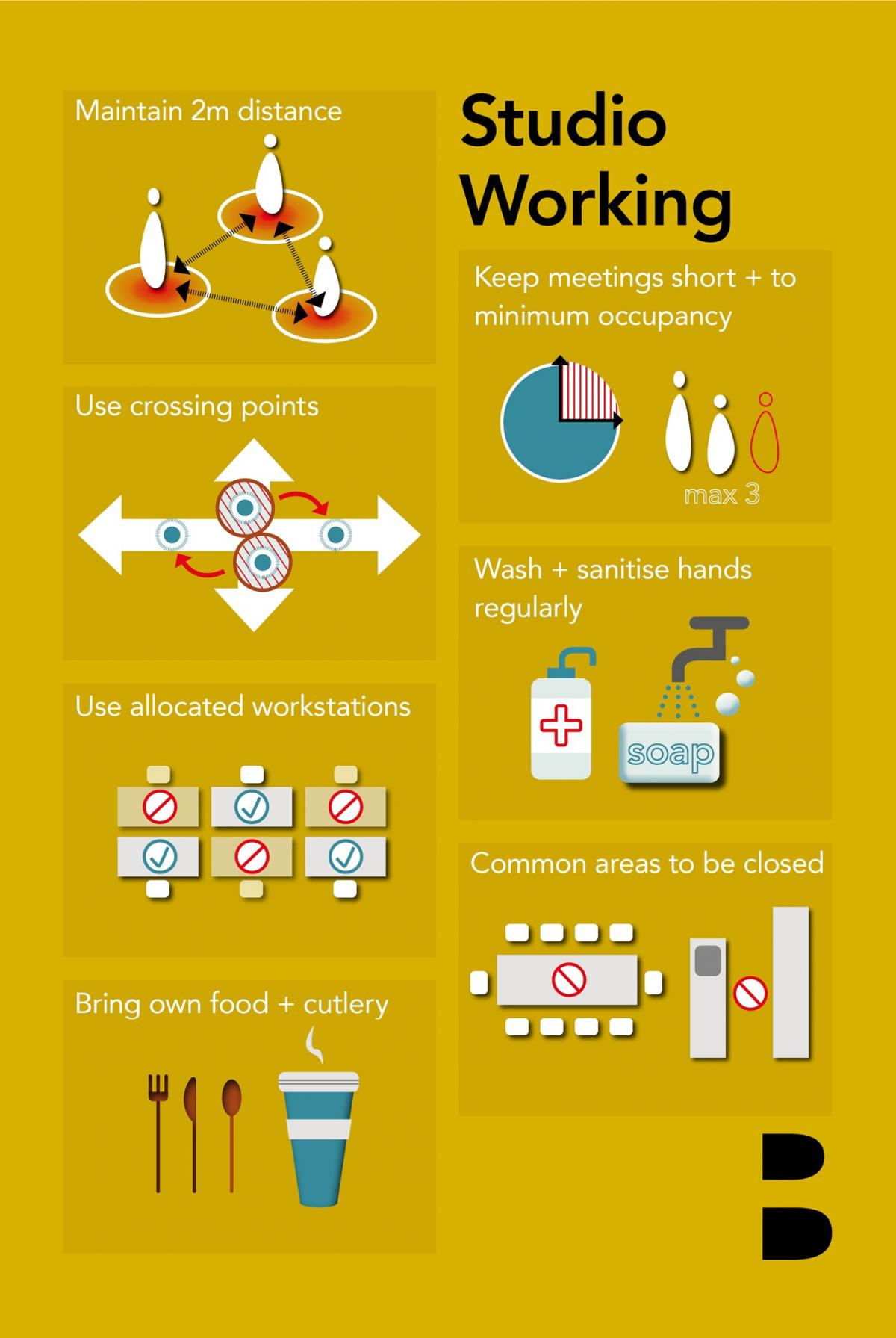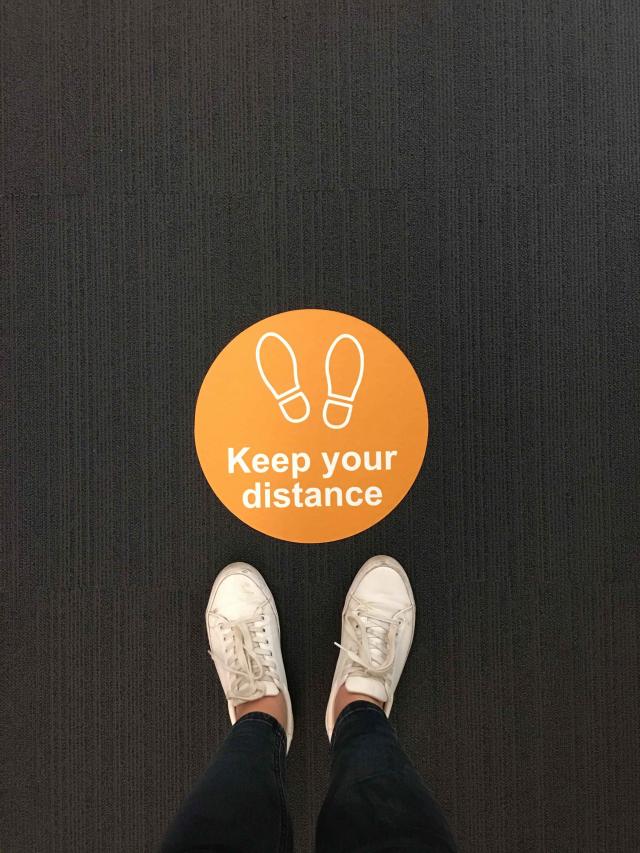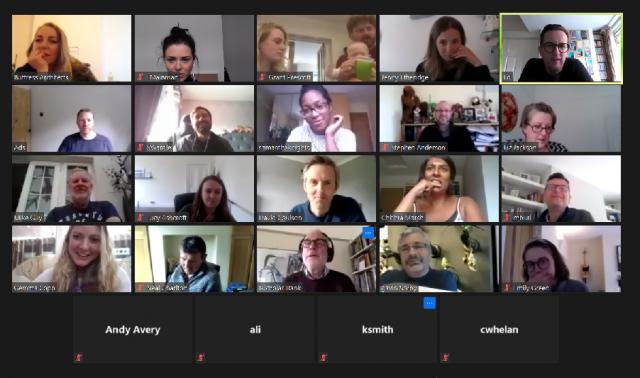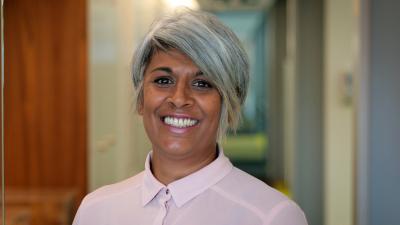Chithra Marsh, Associate Director, discusses how flexibility, resilience and well considered space planning has been key in enabling the practice to respond to the impact of COVID-19 on the workplace.
Six months ago, millions of us packed up our desks under government instructions to work from home, bringing about one of the greatest changes to our society in a generation. In more recent months, tentative steps have been taken towards a return to the workplace, for many this has been within the context of an ever-changing regulatory and legislative environment.
The offices we are returning to, however, are much altered from the spaces we left behind. Health, safety, and social distancing are paramount in enabling a successful return to work, creating a requirement for businesses to critically assess their existing spaces and understand what changes are needed to meet a COVID safe criteria.
Re-entering the workplace after lockdown
The Buttress studio re-opened in July following several months of careful planning and data collection.
Soon after lockdown a team was assembled to devise strategies that would facilitate a safe and smooth transition once restrictions were eased. As a starting point, a survey was created and shared with all members of staff to identify individual concerns and health risks, home working arrangements, and working needs and preferences. The data gathered during this exercise informed adaptions to the space planning of the studio and the development of a draft reset strategy.
A consultation exercise was then carried out with staff, to gain their input and feedback before being finalised.
The final strategy centred on a phased return to work. The first phase has sought to accommodate everyone who expressed a need to work from the studio on either a part time or full time basis, still mindful of the staff that remain working from home.

Creating a COVID secure studio
Ensuring that the studio was COVID secure has required a thoughtful adaption to the existing office layout. Care has been taken to retain our collaborative working culture – which is vital important in times like these – while offering piece of mind for staff with regards to health and wellbeing.
Signs placed through the studio remind staff and visitors to keep two metre distance at all times and a two way route with agreed crossing points has been implemented to reduce contact between staff. Re-opening the office on a phased basis has allowed every other desk to remain empty, creating a safe distance between staff working in the studio. This is supported by our own ‘track and trace’ system which allows us to monitor staff movement in and out of the studio.
To improve sanitation anti-bacterial gel dispensers have been installed at entranceways and along hallways. Internal doors are kept open with door stops during the day to avoid staff touching handles. On each desk, staff have been provided with hand sanitiser and hygiene wipes and a ‘clean desk policy’ has been implemented to allow cleaners to thoroughly clean all desk areas at the end of each day. High contact areas such as kitchen spaces and print areas are also cleaned thoroughly after use to avoid cross contamination.
To reduce the transmission of airborne diseases, the studio’s extract ventilation system has been switched on, and left on at all times, to increase ventilation rates in the studio. This also helps ‘purge’ the space at night. Windows are opened during the day to further help ventilate the space.
Wellbeing and support
We recognise that not everyone has the same comfort level about returning to the office or the same ability to return. Safeguarding individuals’ health and wellbeing has been a focus of our approach for both those able and unable to return to the studio. Regular pastoral communication with all staff has ensured that the members of the studio remain connected and informed regardless of their location.
Our Mental Health First Aiders have also been on hand to offer support to those who require it and our health and wellbeing team’s efforts have been brought to the fore. Whether providing online one-to-one support, meeting team members for socially distanced walks or looking at ways to bring our staff together at virtual events, efforts have been centred around retaining our community culture and contact. This contributes to sustaining good productivity and the ability to continue to deliver creatively for our clients.
Adapting for the future
The future remains unpredictable with ever changing guidance. The key to the sustained success of the business lies in our proactive flexibility. Our studio reset team continually monitor our strategies and how the layout adapts to helping our staff perform at their best. This also applies to how we support our staff working from home.
Similarly, as architects and space planners, we are well accustomed to adjusting our plans to changing briefs. We are keeping a close eye on changes to regulations to ensure that we can respond quickly and proactively when required, while minimising any disruption to business activity.
We continue to take influence from our own learning experience to guide and assist our clients. If you would like to discuss how we can support your own space planning requirements, please contact Chithra here.


Chithra Marsh
Chithra is a director at Buttress with more than 20 years of experience in commercial practice in both the public and private sectors.
